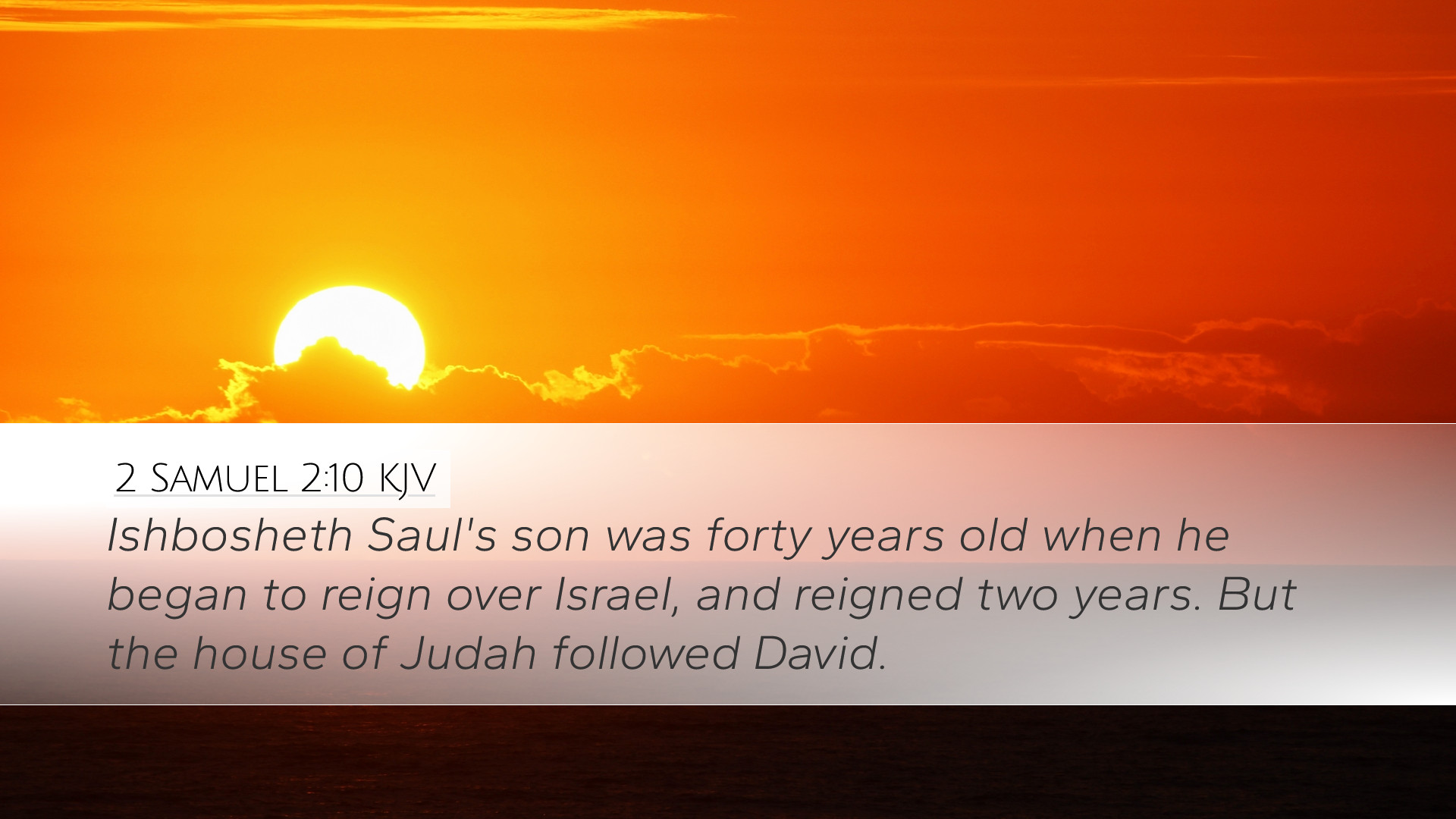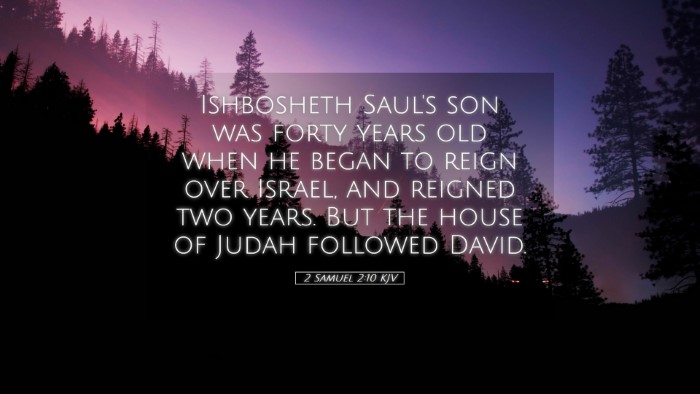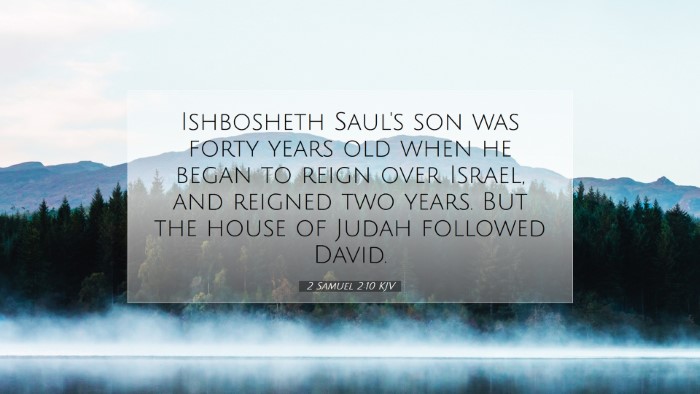Commentary on 2 Samuel 2:10
Verse Reference: 2 Samuel 2:10 - "Ish-bosheth the son of Saul was forty years old when he began to reign over Israel, and he reigned two years. But the house of Judah followed David."
Introduction
This passage marks a significant moment in the history of Israel post-Saul's reign, signifying a time of division and the beginning of the Davidic kingdom. The commentary draws from the insights of notable public domain scholars such as Matthew Henry, Albert Barnes, and Adam Clarke to provide a thorough understanding of its implications for Israel and the broader theological narrative.
Contextual Background
The narrative of 2 Samuel unfolds in a critical phase of Israel's history following the death of King Saul. The nation is politically fragmented, and Ish-bosheth, Saul's son, takes the throne of Israel while David is anointed king over Judah. This verse highlights the transitional leadership and the ensuing struggles for unity among the tribes.
Matthew Henry's Insights
Matthew Henry in his commentary emphasizes two key aspects:
- The Age of Ish-bosheth: Ish-bosheth began his reign at forty years, which reflects his preparedness for leadership yet suggests a significant strategic choice given Saul's tragic end. His maturity could lend justification for an experienced head during turbulent times.
- Duration of Reign: The brief two-year reign signifies the instability within the monarchy. Henry suggests that God's providence permits the rise and fall of leaders to facilitate His ultimate plans, stating that God was positioning David for the future reign.
Albert Barnes' Commentary
Albert Barnes provides a historical lens through which to understand this verse:
- Ish-bosheth as a Puppet Monarch: Barnes highlights that Ish-bosheth was at times seen as a figurehead rather than a genuine ruler, largely manipulated by Abner, Saul's commander. This perspective showcases how personal ambitions and family loyalties can cloud the greater purpose in leadership, underscoring the tensions within the divided kingdom.
- Judah’s Loyalty to David: The contrast between Ish-bosheth's reign and Judah's allegiance to David indicates a pivotal moment in the political landscape. Barnes points out that God's favor was with David, suggesting that Judah’s alignment was indicative of divine approval and foreshadowing the unification of the kingdom.
Adam Clarke's Observations
Adam Clarke offers theological reflections on the implications of Ish-bosheth's short reign:
- The Nature of Leadership: Clarke posits that leadership influenced by divine selection (David) versus political expediency (Ish-bosheth) reveals fundamental truths about authority in God's plan. He emphasizes that rightful authority must align with God's will, reflecting on the spiritual state of Israel.
- The Role of Providence: Clarke discusses the providential aspect of these events, suggesting that Ish-bosheth's reign and David's emerging leadership were stage-setting for a greater purpose. He notes that God's hand was evident in the political upheavals, urging readers to see beyond immediate circumstances to God’s overarching narrative.
Theological Implications
The analysis of 2 Samuel 2:10 offers profound theological insights:
- God’s Sovereignty: The political divide reflects God's sovereignty over Israel. The contrasting fates of Ish-bosheth and David reveal an essential truth: God raises leaders for His purpose, and human plans cannot thwart divine intentions.
- Human Authority and Divine Will: The brief reign of Ish-bosheth serves as a cautionary tale of how leadership devoid of divine backing leads to instability. It calls contemporary leaders to align their governance with God’s will to foster unity and purpose.
Application for Today’s Leaders
This passage serves as a relevant reminder for modern pastors, theologians, and Bible scholars:
- Encouragement of Righteous Leadership: Just as David was chosen for his heart after God, modern leaders must pursue integrity and obedience to divine direction.
- Understanding God’s Timing: The transition from Ish-bosheth to David teaches about the necessity of waiting on God’s timing, as shifts in leadership often occur according to spiritual readiness rather than merely political circumstances.
Conclusion
2 Samuel 2:10 encapsulates the transitional period of Israel’s monarchy, filled with political intrigue and divine sovereignty. Through the insights of Matthew Henry, Albert Barnes, and Adam Clarke, we glean vital lessons on leadership, God’s providence, and the importance of aligning earthly governance with divine purpose. This verse challenges both historical understanding and contemporary application, urging us to seek God's will in all matters of leadership.


